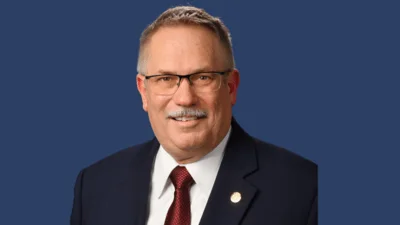The pledge was signed by no teachers on Dec. 28, the day before. It now has two pledges from Flint teachers.
They’re one of the thousands of US teachers pledging to continue educating students about the controversial Critical Race Theory, which explains racism is embedded in US culture and politics.
Comments from Flint teachers included, "The notion that educators cannot teach subjects that might make someone feel uncomfortable about their view of the world around them, and themselves, is ridiculous. It’s called critical thinking. Challenging our perspectives and learning new ways of viewing and understanding history and current events and each other is vital to the development of an educated and thinking populace" and "History is so important but even more important is the ability to decipher the truth from nostalgia. My students, mostly young men and women of color, need to know the true story of this country so they can find a way to live in it. The side that is trying to eliminate the proper and truthful telling of history is only interested in maintaining power. Truth to power is real and I'll fight for that and continue teaching my students (and my own children and anybody else that will listen) real history as I continue to learn it myself".
Though the concept was first suggested in the late 70’s, it has recently exploded as a contentious issue between the American right and left in the last two years.
Many who signed the pledge are defying state bans on the teachings. Arizona, Idaho, Iowa, New Hampshire, Oklahoma, South Carolina, Tennessee and Texas have passed legislation banning discussions about the US being inherently racist.
Other states, such as Montana and South Dakota, have denounced the teachings without passing specific legislation.
In an interview with The Washington Free Beacon', Ashley Varner of the Freedom Foundation accused the Zinn Education Project of providing “left-leaning propaganda to teachers.”
| Teachers | Thoughts on Critical Race Theory |
|---|---|
| Mara Fulmer | The notion that educators cannot teach subjects that might make someone feel uncomfortable about their view of the world around them, and themselves, is ridiculous. It’s called critical thinking. Challenging our perspectives and learning new ways of viewing and understanding history and current events and each other is vital to the development of an educated and thinking populace. |
| Michael Stewart | History is so important but even more important is the ability to decipher the truth from nostalgia. My students, mostly young men and women of color, need to know the true story of this country so they can find a way to live in it. The side that is trying to eliminate the proper and truthful telling of history is only interested in maintaining power. Truth to power is real and I'll fight for that and continue teaching my students (and my own children and anybody else that will listen) real history as I continue to learn it myself. |


 Alerts Sign-up
Alerts Sign-up